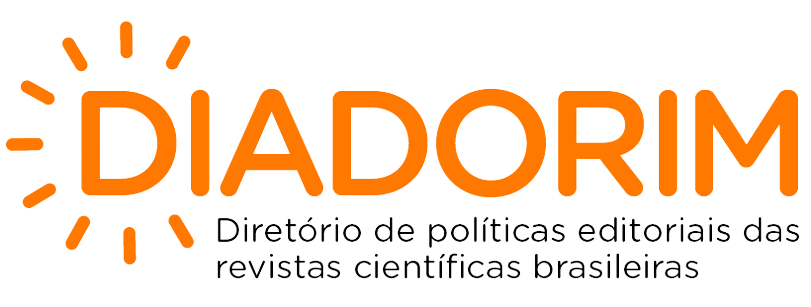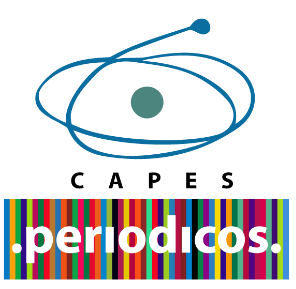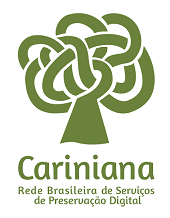The contemporary informational context: the spread of misinformation and its manifestations in the digital environment
DOI:
https://doi.org/10.5433/2317-4390.2020v9n1p87Keywords:
Misinformation, Information dissemination, Information reliability, Fake news. Information societyAbstract
Introduction: The article discusses the current scenario of misinformation on the web with the emergence of terminologies such as 'fake news', 'post truth', 'deepfake', among others. Firstly, the paper alludes to the socio-historical discussions that characterize the period of transformation of modernity (postmodernity, high modernity, liquid modernity). It also presents theoretical notions about the information society and cyberculture. Such contextualization provides the basis for some definitions of information and misinformation.
Objective: To present the current informational context involving the misinformation and suggest new dynamics about the role of the information professional and about the field of Information Science.
Methodology: Using as an epistemological model, the theory and the conceptual map of Luciano Floridi, through an exploratory bibliographical research.
Results and conclusion: Concludes that, faced with this new scenario, a critical look at how to deal with information is essential, looking for ways to ensure information reliability. This scenario also proposes new challenges and paradigms for information professionals and for Information Science as an area of knowledge.
Downloads
References
BAUMAN, Zygmunt. Modernidade líquida. Rio de Janeiro: Zahar, 2001.
CAPURRO, R.; HJORLAND, B. O conceito de informação. Perspectivas em CI, Belo Horizonte, v. 12, n. 1, 2007. Disponível em: https://bit.ly/3hAidmM. Acesso em: 06 out. 2016.
CASTELLS, Manuel. A sociedade em rede. São Paulo: Paz e Terra. 1999. DEMO, Pedro. Ambivalências da sociedade da informação. Ciência da Informação, [S.l.], v. 29, n. 2, nov. 2000. Disponível em: http://revista.ibict.br/ciinf/article/view/885. Acesso em: 28 dez. 2016.
FALLIS, Don. A conceptual analysis of disinformation. In: ICONFERENCE, 4., 2009, Chapel Hill. Proceedings [...]. Illinois: Ideals, 2010. Disponível em: http://hdl.handle.net/2142/15205. Acesso em: 17 jan. 2018.
FLORIDI, Luciano. Artificial intelligence, deepfakes and a future of ectypes. Philosophy & technology, v. 31, n. 3, p. 317-321, sep. 2018. Disponível em: https://bit.ly/3k9izTc. Acesso em: 20 dez. 2018.
FLORIDI, Luciano. Information: a very short introduction. Oxford: Oxford University Press, 2010.
FLORIDI, Luciano. Philosophy of information. 2018. Disponível em: http://www.philosophyofinformation.net/. Acesso em: 20 abr. 2018.
FLORIDI, Luciano. The philosophy of information. Oxford: Oxford University Press, 2011.
GIDDENS, Anthony. As consequências da modernidade. São Paulo: UNESP, 1991.
GIDDENS, Anthony. Modernidade e identidade. Rio de Janeiro: Zahar, 2002.
GLEICK, James. A informação: um conceito, uma história, uma enxurrada. São Paulo: Companhia das Letras, 2013.
LAZER, David M. J.; BAUM, Matthew A.; BENKLER, Yochai; BERINSKY, Adam J.; GREENHILL, Kelly M.; MENCZER, Filippo; METZGER, Miriam J.; NYHAN, Brendan; PENNYCOOK, Gordon; ROTHSCHILD, David; SCHUDSON, Michael; SLOMAN, Steven A.; SUNSTEIN, Cass R.; THORSON, Emily A.; WATTS, Duncan J.; ZITTRAIN, Jonathan L. The science of fake news: addressing fake news requires a multidisciplinary effort. Science, v. 359, n. 6380, p. 1094-1096, 09 mar. 2018. Disponível em: https://bit.ly/3kiMEQb. Acesso em: 07 jun. 2018.
LEITE, Leonardo Ripoll Tavares. Confiabilidade informacional: a Filosofia da Informação e o desenvolvimento da leitura crítica no ambiente virtual. 129 p. Dissertação (Mestrado) - Universidade do Estado de Santa Catarina, Florianópolis, 2018. Disponível em: https://bit.ly/3xyYObs. Acesso em: 10 dez. 2018.
LÉVY, Pierre. Cibercultura. 3. ed. São Paulo: Ed. 34, 2010.
LYOTARD, Jean François. A condição pós-moderna. 8. ed. Rio de Janeiro: J. Olympio, 2004.
MACHIAVELLI, Niccolò. O príncipe. São Paulo: M. Fontes, 1998.
MORETZSOHN, Sylvia Debossan. "Uma legião de imbecis": hiperinformação, alienação e o fetichismo da tecnologia libertária. Liinc em Revista, Rio de Janeiro, v. 13, n. 2, p. 294-306, nov. 2017. Disponível em: revista.ibict.br/liinc/article/view/4088. Acesso em: 05 jan. 2018.
NEWMAN, Russel; CHANG, Victor; WALTERS, Robert John; WILLS, Gary Brian. Web 2.0: the past and the future. International Journal of Information Management, v. 36, n. 4, p. 591-598, aug. 2016. Disponível em: https://bit.ly/36Aq9Ox. Acesso em: 20 nov. 2018.
OXFORD UNIVERSITY PRESS. Disinformation. 2018a. Disponível em: https://en.oxforddictionaries.com/definition/disinformation. Acesso em: 24 jan. 2018.
OXFORD UNIVERSITY PRESS. Misinformation. 2018b. Disponível em: https://en.oxforddictionaries.com/definition/misinformation. Acesso em: 24 jan. 2018.
OXFORD UNIVERSITY PRESS. Word of the year 2016 is.... 2018c. Disponível em: https://bit.ly/2VuGqSU. Acesso em: 18 jan. 2018.
PARISER, Eli. The filter bubble: what the internet is hiding from you. New York: The Penguin Press, 2011.
PINHEIRO, Marta Macedo Kerr; BRITO, Vladimir de Paula. Em busca do significado da desinformação. DataGramaZero, v. 15, n. 6, p. A05, 2014. Disponível em: https://bit.ly/3wB0Kin. Acesso em: 26 jan. 2018.
PRIMO, Alex. O aspecto relacional das interações na Web 2.0. E- Compós, Brasília, v. 9, p. 1-21, 2007. Disponível em: http://www.ufrgs.br/limc/PDFs/web2.pdf. Acesso em: 15 maio 2017.
RECUERO, Raquel. Redes sociais na internet. Porto Alegre: Sulina, 2009.
ROCHLIN, Nick. Fake news: belief in post-truth. Library high tech, v. 35, n. 3, p. 386-392, 2017. Disponível em: https://bit.ly/36y1Elb. Acesso em: 20 set. 2018.
RODDEN, John. Donald and Winston at the Ministry of Alternative Facts. Society, v. 54, n. 3, p. 215-217, jun. 2017. Disponível em: https://bit.ly/36x7dQG. Acesso em: 10 dez. 2018.
SANTANA JÚNIOR, Célio Andrade; LIMA, Camila Oliveira. O papel das máquinas sociais na formação de opinião em rede. Liinc em Revista, Rio de Janeiro, v. 13, n. 2, p. 307-322, nov. 2017. Disponível em: http://revista.ibict.br/liinc/article/view/3940. Acesso em: 05 jan. 2018.
VOSOUGHI, Soroush; ROY, Deb; ARAL, Sinan. The spread of true and false news online. Science, v. 359, n. 6380, p. 1146-1151, 09 mar. 2018. Disponível em: https://bit.ly/3i2YGul. Acesso em: 05 jun. 2018.
Downloads
Published
How to Cite
Issue
Section
License
Copyright (c) 2020 Informação@Profissões

This work is licensed under a Creative Commons Attribution 4.0 International License.
A revista se reserva o direito de efetuar, nos originais, alterações de ordem normativa, ortográfica e gramatical, com vistas a manter o padrão culto da língua e a credibilidade do veículo. Respeitará, no entanto, o estilo de escrever dos autores. Alterações, correções ou sugestões de ordem conceitual serão encaminhadas aos autores, quando necessário.
O conteúdo dos textos e a citação e uso de imagens submetidas são de inteira responsabilidade dos autores.
Os trabalhos publicados passam a ser propriedade da revista Informação& Profissões, ficando sua reimpressão total ou parcial sujeita a autorização expressa da revista. Em todas as citações posteriores, deverá ser consignada a fonte original de publicação, no caso a Informação&Profissões.












